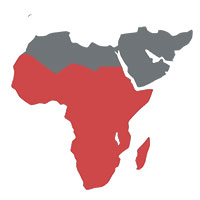Reflections on Rio+20 – The Way Forward
Karuna Rana | September 28, 2012.
Three months on from Rio+20, critics and supporters are still divided over what could have been a momentous occasion for sustainable development policy.
The official outcome, ‘The Future We Want”, has been called everything from “283 paragraphs of fluff” by George Monbiot to “a solid foundation on which to build” by Helen Clark, UNDP Administrator. Activists and NGOs have called it “a failure of epic proportions” and “the greatest failure of collective leadership since the first world war”. Contrastingly, Rio+20 Secretary-General, Mr. Sha Zukang commended the process for “[securing] a blueprint for the future we want”.
With commentary as different as day and night, it makes me wonder what really did happen in Rio but, more importantly – what will happen now?
I left Rio with mixed feelings. Like other young people, I was frustrated and disappointed. But, I also had an overwhelming sense of hope from the 50,000 people present, all working in the sustainable development arena, gathering to showcase and collaborate for the future.
When the conference that was meant to lead to a more equitable and prosperous world for all doesn’t; it’s reassuring to know that over 700 voluntary commitments and $500bn has been pledged by businesses, NGOs and UN agencies alike. Commitments have varied from planting one hundred million trees by 2017 to empowering 5,000 women entrepreneurs in green economy businesses in Africa and recycling 800,000 tonnes of PVC per year by 2020.
Businesses are also leading the way through technology and innovation, areas that they pioneer within. With billions of daily consumers relying on their products and services, the onus is on corporations to be environmentally responsible. For instance, Microsoft have committed to achieving carbon neutrality through carbon offsetting and Unilever aim to halve the overall greenhouse gas impact of their products.
In addition to what businesses and NGOs are doing, national governments are also beginning to implement solutions with action oriented plans and monitoring processes. My own government’s ‘Maurice Ile Durable’ vision to transform Mauritius into a sustainable island through a targeted use of 65% renewable energy by 2028 is an example of the bold effort that small island states are taking.
Individuals too are moving beyond complaining from the comfort of their couches by changing their lifestyle. This transition is possible through comprehensive education systems that emphasise the importance of sustainability. Scientific and social knowledge about ecological problems are needed from an early age; it is only then that future generations will be equipped for tomorrow. UNESCO points out the Netherlands’ ‘Learning for Sustainable Development‘ programme as an exemplary framework as it embeds the concept of education for sustainable development across all its sectors, including in formal curricula.
Whilst the lack of international action from Rio is distressing, it has also allowed for action from national governments, corporations, educational institutions, NGOs and individuals.
The future we want is no longer contained to a document. It is being decided right now everywhere; from our homes to our boardrooms.
By Karuna Rana, photo by Lachie McKenzie.











comment